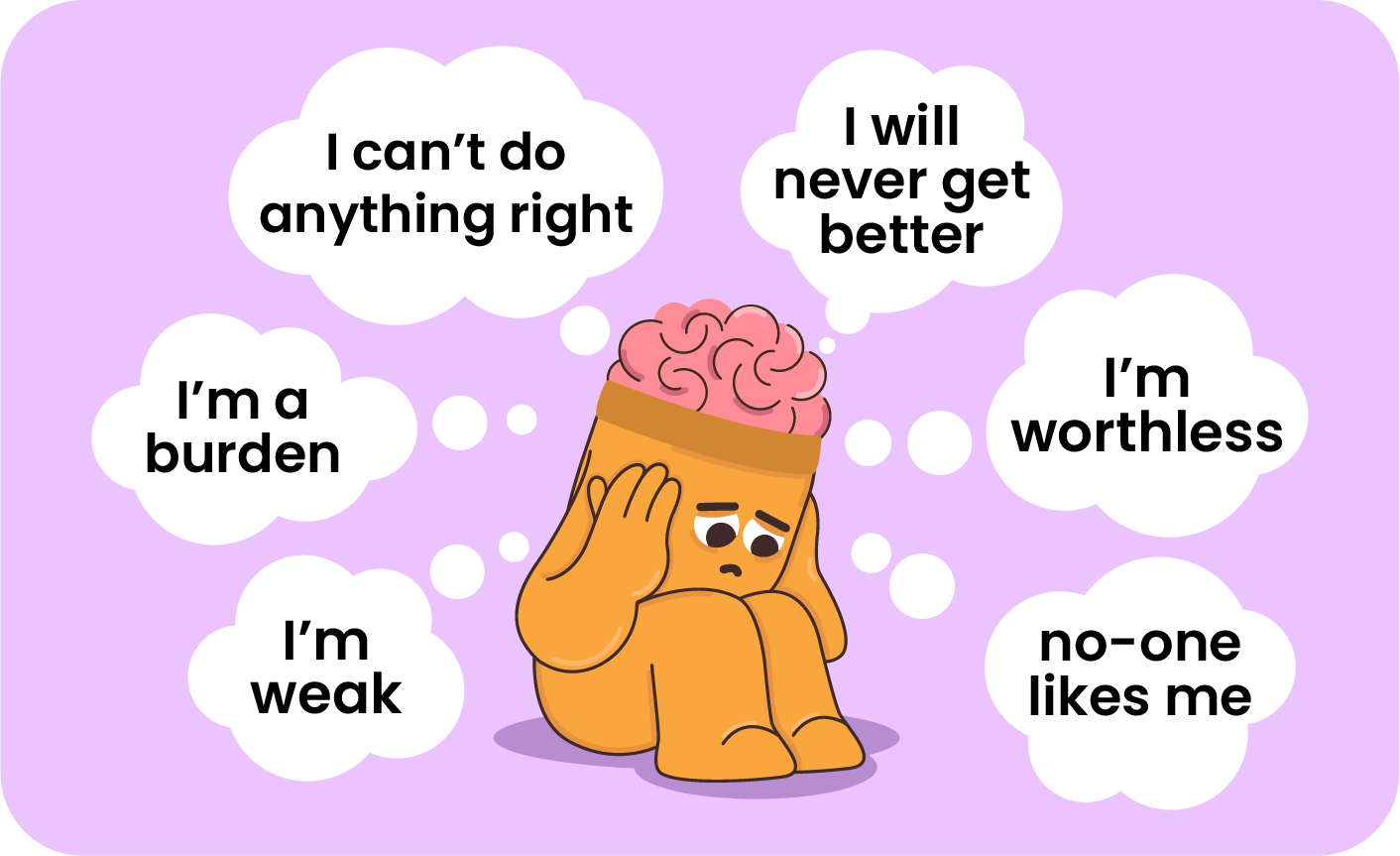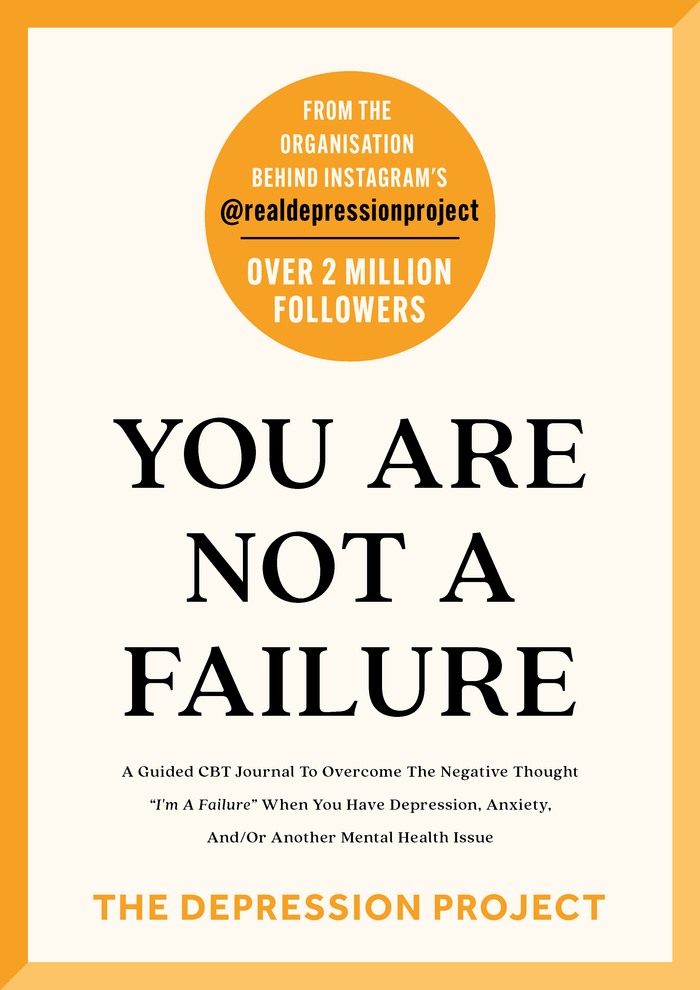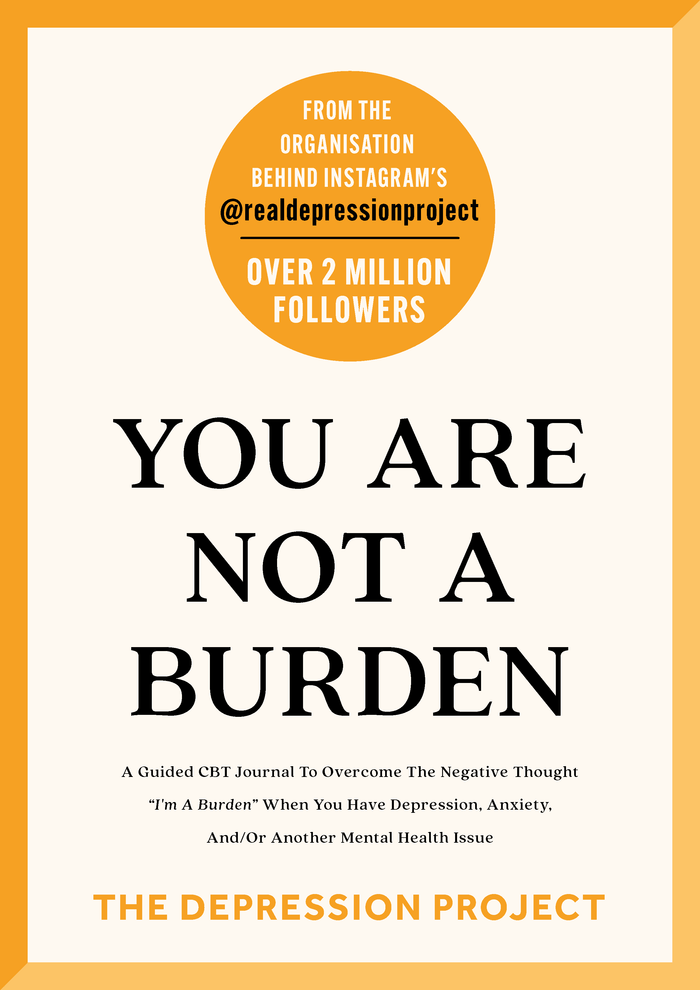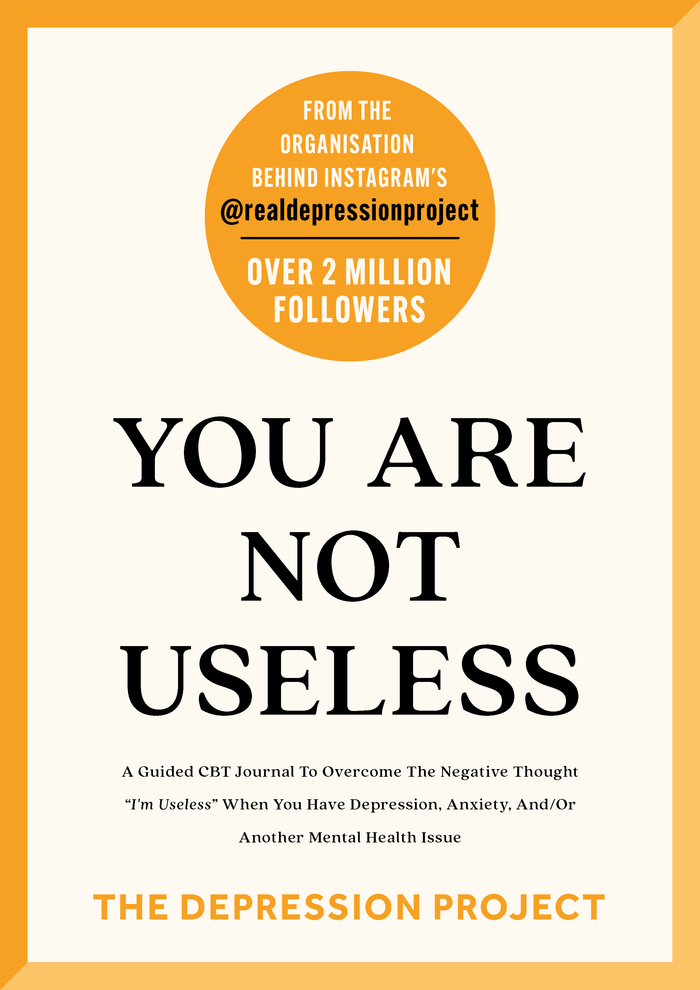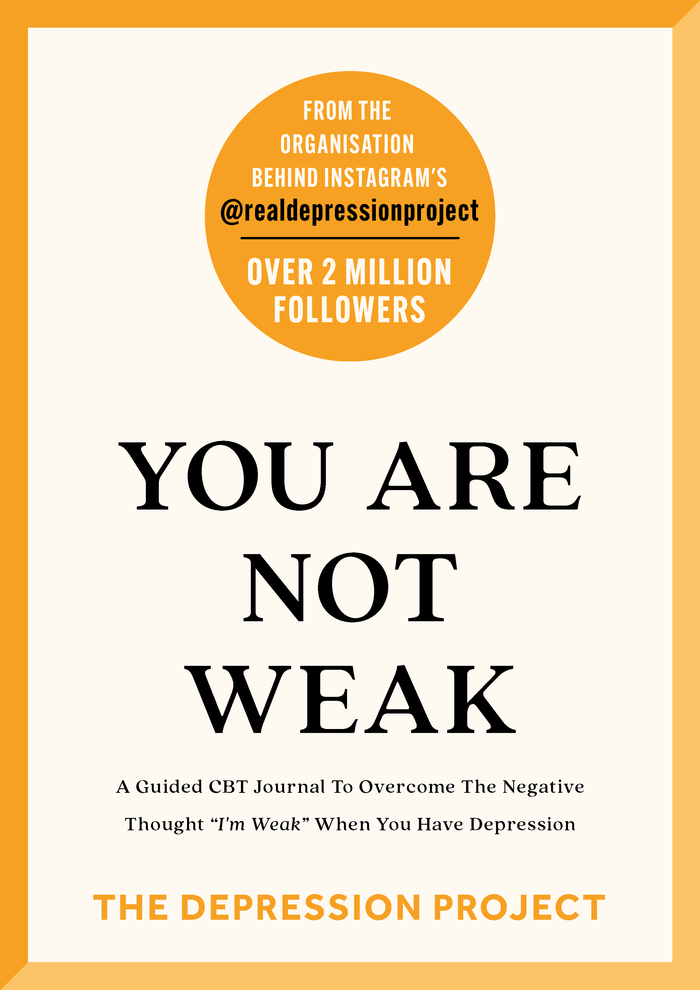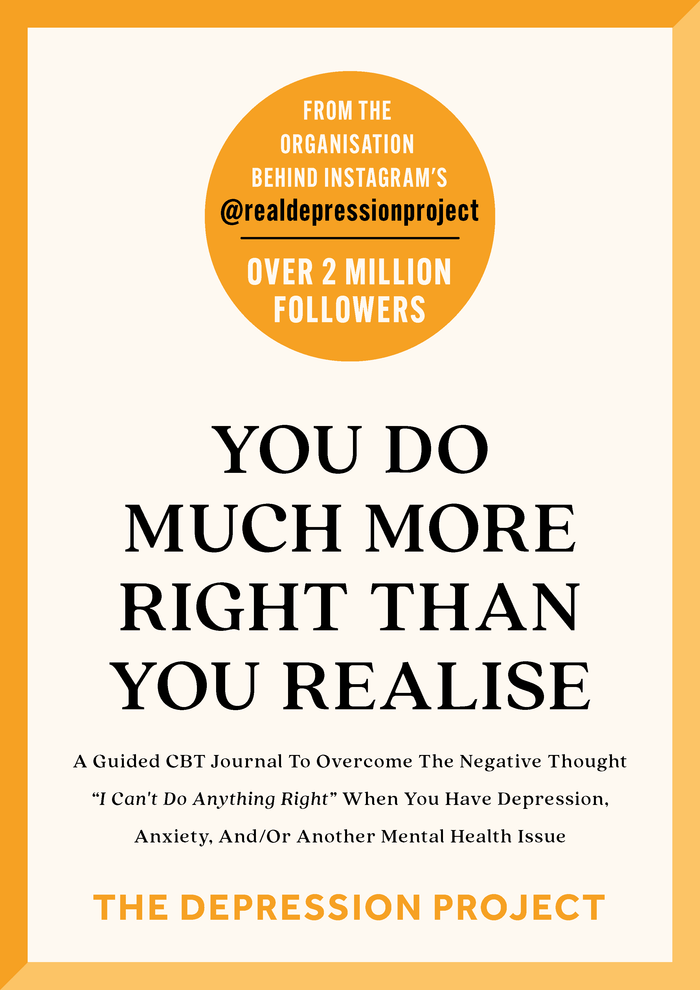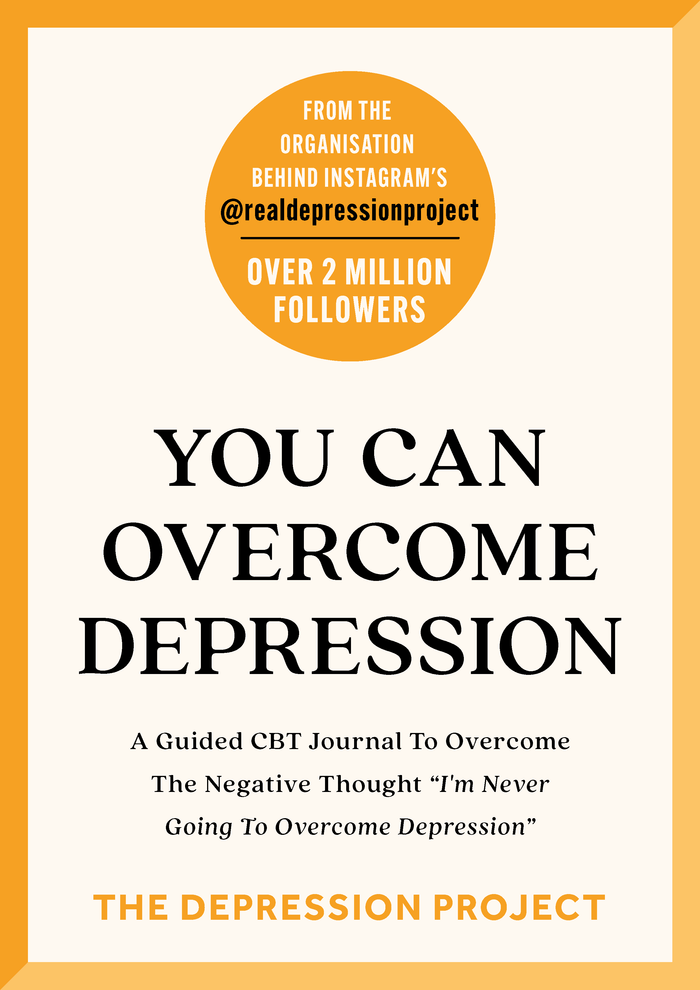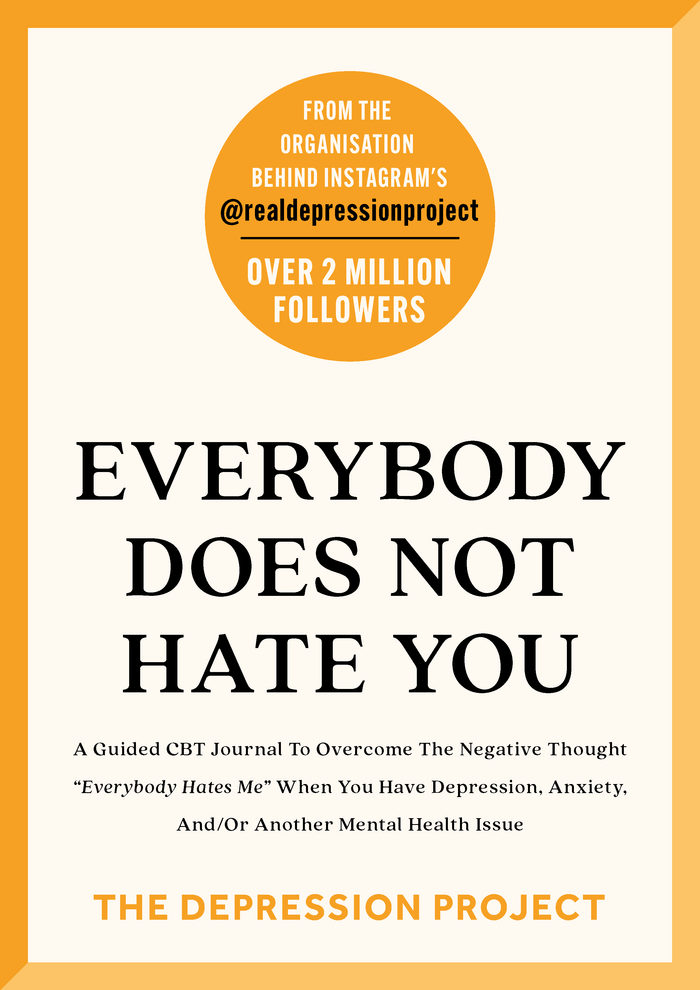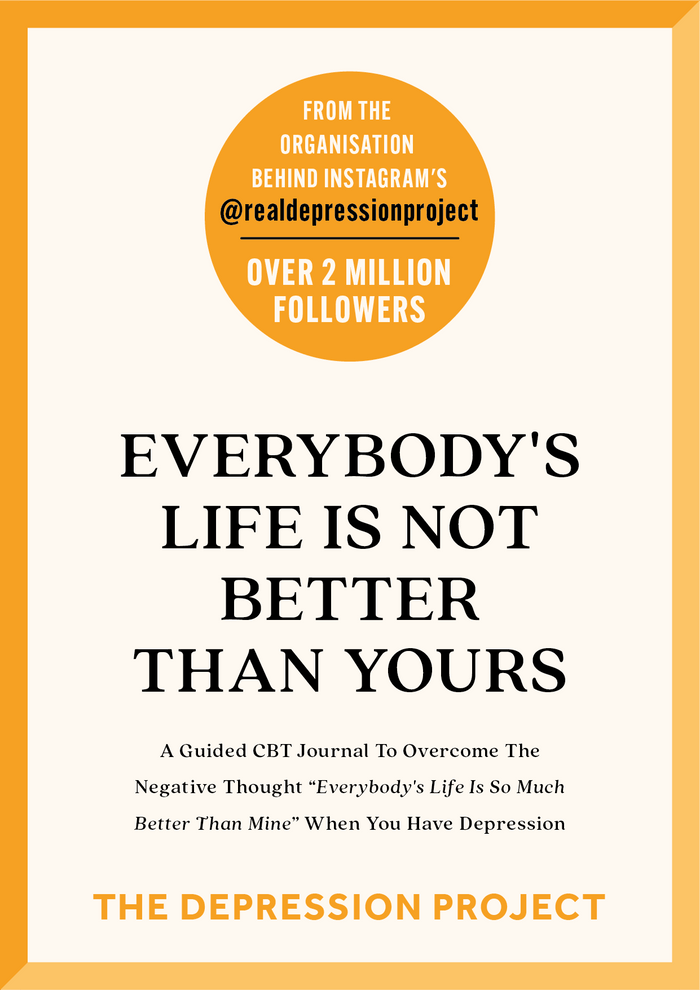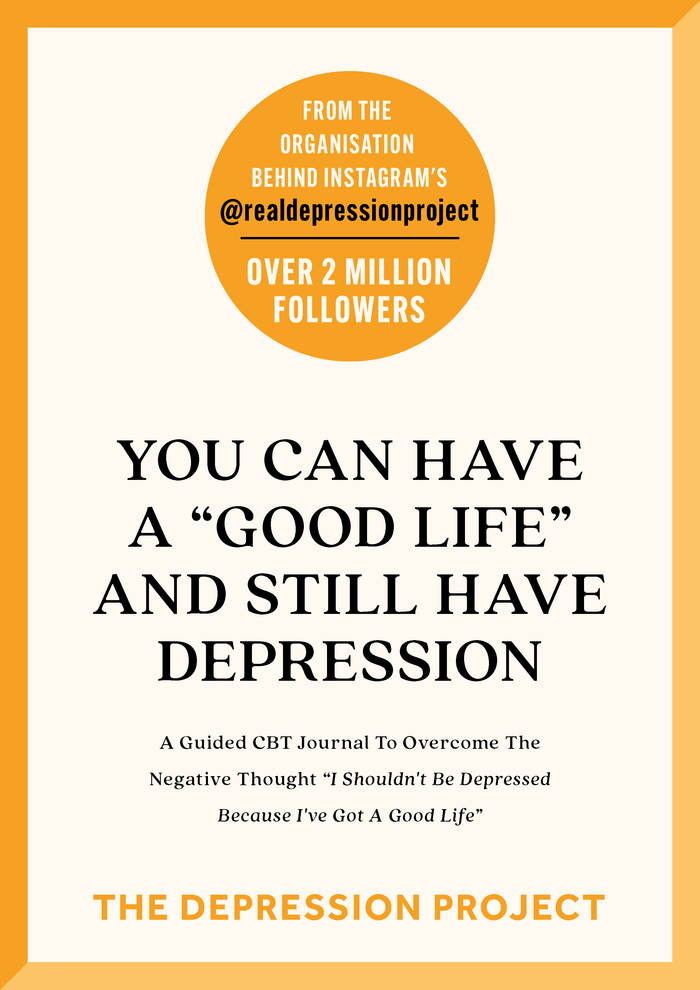In order to help people with depression feel less alone - as well as to help their supporters better understand depression - at The Depression Project, we recently asked our 1,000,000+ person Facebook community the following question:
What are some examples of negative thoughts that people with depression often experience?
Below, we've included 50 of the most common responses, and if you struggle with negative thoughts such as these yourself, then in this blog post, we'll also share with you:
- How negative thinking can lead to depression;
- Where negative thoughts come from / how they are commonly triggered;
- Three cognitive behavioural therapy strategies to cope with and overcome negative thoughts;
- A dialectical behaviour therapy technique known as "thought defusion" to help you prevent yourself from buying into your negative thoughts;
- Links to further resources to overcome negative thoughts.
As soon as you're ready, let's get started.
50 Examples Of Negative Thoughts When You Have Depression
-
"I'm not enough"
-
"All my friends and family hate me"
-
"I will never overcome depression"
-
"I can't do anything right"
-
"I'm such a failure"
-
"I'm a burden"
-
"Everyone would be better off without me"
-
"I can't do this anymore"
-
"I wish I was more like him / her - they're so much better than me"
-
"There's no point to any of this"
-
"Nothing good I achieve will ever be noticed"
-
"I'm a terrible mother/father"
-
"No-one would notice if I just disappeared"
-
"My friends all talk trash about me behind my back"
-
"I'm so ugly"
-
"Something bad always happens"
-
"My depression just brings everyone else down with me - I'm so selfish"
-
"I don't deserve the love of anyone in my life"
-
"I can never make up for all the harm I've caused"
-
"My parents must be so disappointed in me"
-
"I'm a loser who will never amount to anything"
-
"I'm no fun to be around"
-
"I should have said _______ - I'm such an idiot"
-
"I'd rather be anyone else than me"
-
"Life is just a burden"
-
"I'm such a drama queen - the smallest things always trigger me"
-
"I bet my parents regret having me"
-
"I'll never be enough for a romantic partner"
-
"If I died no-one would go to my funeral"
-
"The poor treatment I receive from others is all my fault"
-
"I'm not depressed, I'm just lazy"
-
"I'm such a weak person"
-
"If anyone really cared about me, they would be with me"
-
"I can't even clean my house - I must be completely useless"
-
"The world is so cruel and cold"
-
"People just tolerate me - they don't like me"
-
"I turn everyone in my life bad"
-
"I should be doing better in my life by now"
-
"I've squandered every good opportunity I've ever had"
-
"I don't deserve to have my depression, people have it so much worse"
-
"I cannot do things I know I'm capable of"
-
"Anyone would hate me if they got to know me"
-
"I will die alone"
-
"I'm so pathetic that I can't even take my own life"
-
"I don't deserve anything good to ever happen to me"
-
"Everyone who likes me is lying to me"
-
"No-one will ever truly understand me"
-
"I've never achieved anything"
-
"No-one wants to hear my opinion"
-
"I'm worthless and unlovable"
How Negative Thinking Leads To Depression
The central tenet of cognitive behavioural therapy (CBT) - which is a leading form of treatment for depression1 - is that:
Your thoughts will have a direct impact on your mood and your behaviours.2
For example:
- Thinking the negative thought "I'm a failure" can make you feel worthless;
- Thinking the negative thought "I'm a burden" can cause you to feel shame and self-hatred;
- Thinking the negative thought "I'm not good enough" can influence you to not try something that you really want to do (and therefore feel unfulfilled as a result);
- The negative thought "I'm so ugly" can make you feel bad about yourself and sabotage your confidence;
- The negative thought "no-one will ever truly understand me" can make you feel alone and isolated;
- The negative thought "I will never overcome depression" can make you feel hopeless.
And, in these ways and many, many more, negative thoughts like the examples we've just shared with you (in addition to countless others) can lead to you feeling depressed.
Where Do Negative Thoughts Come From / What Commonly Triggers Them?
Negative thoughts like the examples we've just looked at arise in response to one or more triggers. And, while negative thoughts can be triggered in countless different ways, for the sake of clarity, we've classified these triggers into six main categories for you.
1. Negative Thoughts Triggered By / Within Your Interpersonal Relationships
As you've unfortunately likely experienced, when you have depression, negative thoughts can be triggered within your interpersonal relationships in many, many different ways. Some common examples include:
-
Thinking "I'm such a burden" or "everybody would be better off without me" after your partner spent the night supporting you through your depression.
-
Thinking "I'm so unlovable" or "I'm so worthless" when someone you love criticises you.
-
Thinking "I'll never be good enough" in response to your parents not congratulating you on something you achieved.
-
Thinking "no-one wants or needs me" in response to not hearing from your friends for a while.
2. Negative Thoughts Triggered By Your Emotions
In addition to your interpersonal relationships, your emotions can also trigger negative thoughts. This is because when you're battling depression, you're also feeling intense, painful emotions that can cause you to think much more negatively than you otherwise would. Some common examples of this include:
-
Thinking "no-one likes me", as a result of being consumed with feelings of worthlessness and self-hatred.
-
Thinking "I'm such an idiot for doing _______", as a result of being consumed by feelings of regret.
-
Thinking "there's no point in doing anything" as a result of being consumed by lack of motivation.
-
Thinking, as a result of being consumed with misery and hopelessness:
-
"I have no future"
-
"I will never get through this"
-
"Nothing good will ever happen to me again"
-
"I'm never going to overcome depression"
-
"There is no point in being alive anymore"
-
3. Negative Thoughts Triggered By Your Behaviours
Your behaviours can also trigger negative thoughts. For example:
-
Thinking "I'm such a bad friend" because, as a result of feeling depressed and needing time for yourself to recharge your batteries, you decided to stay at home instead of attending your best friend's birthday party.
-
Thinking "I'm such a bad mother / father / son / daughter / sibling / friend" after accidently snapping at someone you love.
-
Thinking "I'm such a failure / I'm not good enough / I'm such a loser / I have a bad life" in response to you negatively comparing yourself to somebody else.
-
Thinking "I'm such a loser / failure" or "I'm so hopeless / pathetic" for coping with your depression in a way that you feel ashamed of - such as by binge eating or over-spending on "retail therapy", for example.
4. Negative Thoughts Triggered By "Something Physical"
In this context, by "something physical", we mean negative thoughts that are triggered by something to do with your body or how you feel physically. And, when you have depression, perhaps the most common negative thoughts that arise from "something physical" would be thinking - due to feeling completely exhausted as a result of your depression - something like, for example:
-
"I'm such a failure" - in response to struggling to work as well as you otherwise would if you didn't have depression / as well as other people who don't have depression.
-
"I'm so lazy" - in response to spending all day in bed during a deep depressive episode.
-
"I'm so worthless / pathetic / useless" in response to struggling to do the "little things" like your chores or looking after your personal hygiene.
Additionally, another common example would be thinking "I'm so fat and unattractive" - in response to stepping on a set of scales and realising that you're heavier than the last time you weighed yourself.
5. Negative Thoughts Triggered By Your "Environment"
In this context, your "environment" encompasses:
-
Your physical surroundings - such as your living quarters and the city you're in.
-
What's going on in the world around you - including events and issues that are taking place on a local scale (such as your country's politics), and also events and issues that are global in nature (such as climate change or war, for example).
Common examples of negative thoughts that are triggered by your environment include:
-
Thinking "I'm useless / pathetic / hopeless / worthless" when you notice that your house is messy - as a result of feeling so depressed and exhausted lately that you haven't managed to clean it.
-
Thinking "if ______ gets elected, then my life will be ruined" - in response to the latest polls showing that _______ has taken the lead.
6. Negative Thoughts Triggered By Simple, Everyday Events
Of course, sometimes negative thoughts are also automatically triggered by common, everyday events. For example:
-
Thinking "I'm such an idiot" or "I can't do anything right" when you make a mistake at work or when you do something a bit careless like forgetting your wallet at home, for instance.
-
Thinking "I'm such a worthless failure / I'm such a loser" after not doing as well at something as you wanted to.
-
Thinking "I'm so unlovable" or "I'm not good enough" when you're talking to someone you find attractive at a party and they don't ask you out on a date.
Cognitive Behavioural Therapy Strategies To Cope With And Overcome The Negative Thought Examples We've Shared With You (And Others Like Them) When You Have Depression
Now that we've identified some of the most common examples of negative thoughts that people with depression experience, how negative thinking can lead to depression and the ways in which negative thoughts are commonly triggered, we'd next like to share with you three different cognitive behavioural therapy strategies you can implement to help you realise that even though your negative thoughts can be really convincing, they are not accurate reflections of reality.
And, this is really, really important, because once you can see this, then rather than buying into them and having them consequently fuel your depression, your negative thoughts will likely lose at least some of their power over you, and therefore become easier to dismiss and let go of.
Cognitive Behavioural Therapy Strategy #1 To Overcome Your Negative Thoughts When You Have Depression: Bring Awareness To The Evidence That Disputes Your Negative Thoughts3
So, the first strategy we want to share with you to help you realise that your negative thoughts are lies is to ask yourself:
What is the evidence to suggest that my negative thoughts are false?
Now, the reason why this can be so beneficial is because when you take a step back and examine the evidence that is contrary to what your negative thoughts are telling you, then you'll often end up with a much more accurate perception of reality, and realise that you're thinking through an overly pessimistic and/or critical lens.
To see how this can work in practice, let's have a look at a few different examples.
Example Negative Thought #1: "I didn’t do as well in my exams as I wanted to, so that means that I’m stupid, that I’m a failure, and that I’ll never get a good job after university."
However, evidence to the contrary might be:
-
You did well enough in your high school exams to get into university, and you’ve done well in other university exams before this – which proves that you are not stupid.
-
Not doing as well as you wanted to in one set of exams does not define you as a failure. After all, nobody achieves their goals 100% of the time, and therefore, it’s unrealistic to think that you always will, and it’s unfair to label yourself as a failure when you don’t.
-
When you apply for jobs in the future, you're going to be judged on so much more than just this particular set of exams – and so not doing as well as you wanted to does not mean that you’ll never get a good job.
Example Negative Thought #2: "I snapped at my daughter this morning, so that means I’m a terrible parent."
However, evidence to the contrary might be:
-
While you no doubt regret snapping at your daughter this morning, it does not mean that you're a terrible parent. This is because it’s unrealistic to expect yourself to behave perfectly all of the time, and when you don’t behave perfectly, it does not automatically mean that you're “terrible”.
-
Even though you snapped at your daughter this morning, throughout the previous week you’ve helped her with her homework, cooked her favourite dinner and taken her and her friends to the movies – all of which proves that you're actually a very good parent.
Example Negative Thought #3: "I struggle to do even the simplest of things like brushing my teeth, shaving and having a shower - I'm so worthless."
However, evidence to the contrary would include, for example:
-
The fact that feeling exhausted is a direct consequence of depression, and that for this reason, it's actually perfectly normal and understandable that you'd find it difficult to do the "little things" like taking care of your personal hygiene. Therefore, you struggling to brush your teeth and have a shower is due to your depression - not because you're "worthless".
-
Additionally, further evidence to invalidate this thought would also include all of the reasons why you are in fact worthy.
Example Negative Thought #4: "What I'm experiencing right now is so difficult ... I'll never be able to get through it."
However, evidence to the contrary could include, for example:
-
The fact that you've survived every difficult thing that you've ever been through before - which is evidence to suggest that you're actually much stronger than you give yourself credit for, and that you'll be able to survive what you're going through now as well.
Cognitive Behavioural Therapy Strategy #2 To Overcome Your Negative Thoughts When You Have Depression: Reframe Your Negative Thoughts In A More Positive, Self-Compassionate And Accurate Way4
The second technique we want to share to help you realise that your negative thoughts are lies is to ask yourself:
Is there a more positive, self-compassionate, accurate way that I could be looking at things?
Asking yourself this question is an example of "cognitive reframing", and the reason why it can be so helpful is because there usually is indeed a more positive, self-compassionate, accurate way of viewing things!
To illustrate how cognitive reframing can work in practice, let's once again look at a handful of common examples.
Example Negative Thought #1: "I'm such a burden for being in a low mood and needing my partner's support every night this week."
However, a more positive, self-compassionate and accurate way of viewing this might be:
“It is OK to not be OK, and in the same way that I wouldn’t judge my partner and think that they are a burden if it was them who needed support, I shouldn’t judge myself either. After all, partners are there to uplift each other.”
Example Negative Thought #2: “I’m so weak for breaking down over such a small issue."
However, a more positive, self-compassionate and accurate way of viewing this might be:
“I’m actually really strong for carrying the weight of depression’s challenges for so long, and it’s OK to have moments where it’s too heavy for me."
Example Negative Thought #3: "I'm never going to overcome my depression."
However, a more positive, self-compassionate and accurate way of viewing this might be:
"Just because I haven't overcome my depression yet, it doesn't mean that I never will. In fact, if I get treatment, read depression self-help books, take online courses by therapists, and do everything else I possibly can to beat my depression, then there's a good chance that I eventually will!"
Example Negative Thought #4: “There is no point in being alive anymore."
However, a more positive and accurate way of viewing this would be:
"I'm really, really deep in a depressive episode right now, which means that right now, my thoughts are grounded in pessimism and hopelessness as opposed to reality. If I was in a much better headspace, then I'd be able to see that life is indeed worth living."
Cognitive Behavioural Therapy Strategy #3 To Overcome Your Negative Thoughts When You Have Depression: Asking Yourself The "Golden Question"3
The third strategy we want to share with you to help you overcome your negative thoughts is to ask yourself what we call the "golden question" because it can be so, so enlightening:
If a friend was in my position, would I be telling them the same negative, critical things that I'm currently telling myself?
Asking yourself this question can be extremely powerful, because it has the effect of distancing you from your thoughts and looking at them from a different, more objective angle. And, when you do this, you'll often realise that you’re being really, really hard on yourself.
For example, if your friend didn’t do as well in a set of exams as they wanted to, then would you think that they are a failure and that they will never get a good job?
If your friend snapped at their daughter, would you think that they are a terrible parent?
If your friend had depression and was struggling to brush their teeth, have a shower or do their chores, then would you think that they are "lazy", "useless", "pathetic" and/or "worthless"?
If your friend needed support because they were struggling with depression, then would you think that they are a burden?
If your friend made a simple mistake, then would you think that they are an idiot?
If someone posted something on social media that your friend hadn’t achieved yet, then would you think that they are "not good enough"?
In all of these instances, we're guessing that you would not think any of these negative, critical things about your friend - are we right? And, if this is true, then it's proof that you really are being overly critical and judgmental of yourself, and that you instead need to offer yourself much more love, care and compassion.
Thought Defusion: A Dialectical Behaviour Therapy Technique To Cope With Negative Thoughts
Thought defusion is a mindfulness technique which is also popular in dialectical behaviour therapy5, and one that you can use to help prevent yourself from buying into your negative thoughts.
For this strategy, start by closing your eyes, taking a few deep breaths, and then, try to imagine your negative thoughts as something that’s harmlessly drifting away from you. For example:
- Imagine that each of your negative thoughts are a balloon, floating away in the sky.
- Imagine that you’re standing at the top of a hill or a sloping street, and that your negative thoughts are tennis balls rolling down it.
- Imagine that you’re at the beach, and that your negative thoughts are birds flying by in the distance.
- Imagine yourself sitting on a street-side bench, and that your negative thoughts are cars passing by in front of you.
If you prefer another form of imagery that captures your thoughts coming and going like so, then of course, you’re most welcome to use that. Either way, just visualise your negative thoughts as being outside of your head, floating away, rolling away, passing you by, etcetera, without trying to analyse them, without trying to judge them, without trying to suppress them, without trying to overthink them and without trying to buy into them.
Additional Blog Posts And Cognitive Behavioural Therapy-Based Journals To Help You Overcome Negative Thoughts
Because negative thoughts play a major role in fuelling depression like we've talked about, at The Depression Project, we've also created a variety of additional resources to help you cope with and overcome some of the most common ones. In particular, these resources include:
Blog Posts
- How To Cope With The Thought "No-One Understands Me"
- Feeling Like A Failure - 50+ Quotes & Coping Strategies
- Depression And Feeling Like A Burden: Causes & Coping Strategies
- 5 Ways To Reframe The Thought "I'm Broken" To Help You See You Are Not
- Are You Thinking "Am I A Bad Person?" If So, Here's Why You're Not
- 5 Things That Can Falsely Convince You "I'm Stupid"
- 6 Things That Can Falsely Convince You "I Can't Do Anything Right"
- 6 Questions To Ask When You're Thinking "What's The Point Of Life?"
- Body Positivity: Benefits, 15+ Quotes & How To Love Your Body (which includes 5 ways to reframe the negative thought "I hate my body")
- Thinking Patterns That Can Falsely Convince You "I Will Never Overcome Depression"
- More coming soon!
Cognitive Behavioural Therapy-Based Journals
In addition to the above blog posts, we've also created a variety of cognitive behavioural therapy-based journals to help you cope with and overcome negative thoughts like "I'm a failure", "I'm a burden", "I'm useless", "I'm weak", "I can't do anything right", "I will never overcome depression", "everybody hates me", "everybody's life is so much better than mine", and "I shouldn't be depressed because I have a good life".
A Final Reminder When It Comes To Negative Thoughts!
So, we have now reached the end of this blog post, but before you move on to something else, we'd just like to leave you with one final reminder:
Just because you think a negative thought, it does NOT mean that it's true!
And, the more you're able to implement the strategies we've shared with you in this blog post and the resources we've linked to, then the more and more you'll be able to see that they're false, and as a result, you'll likely find them easier and easier to dismiss and let go of.
All our love,
The Depression Project Team.

